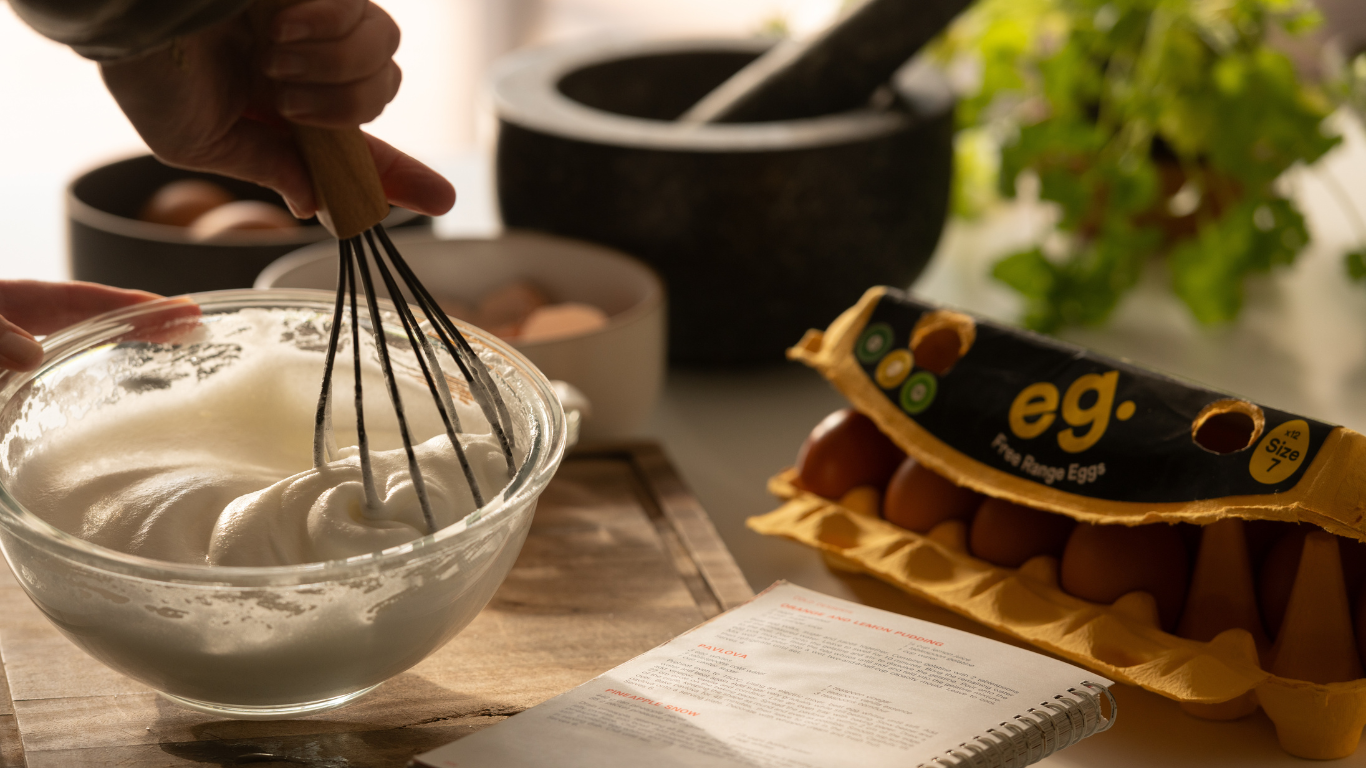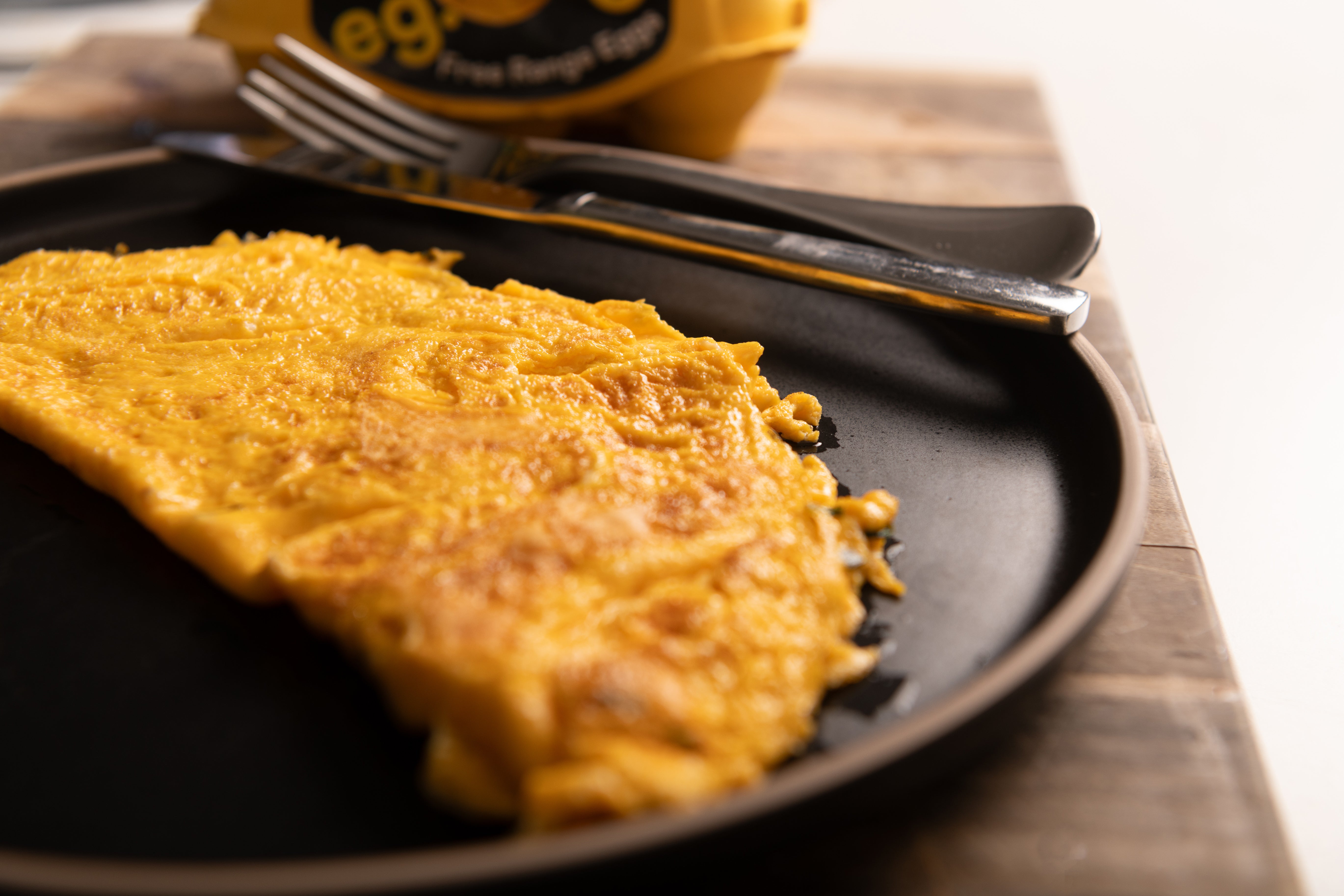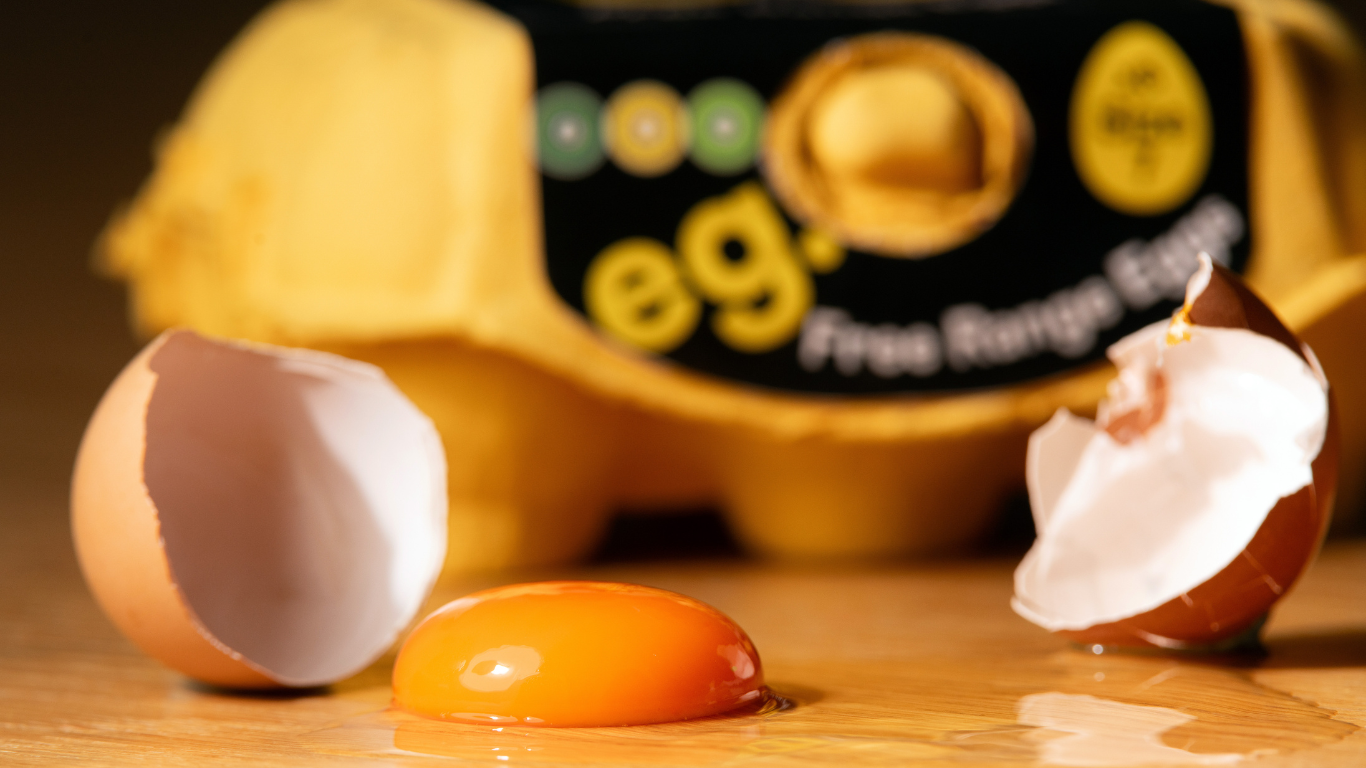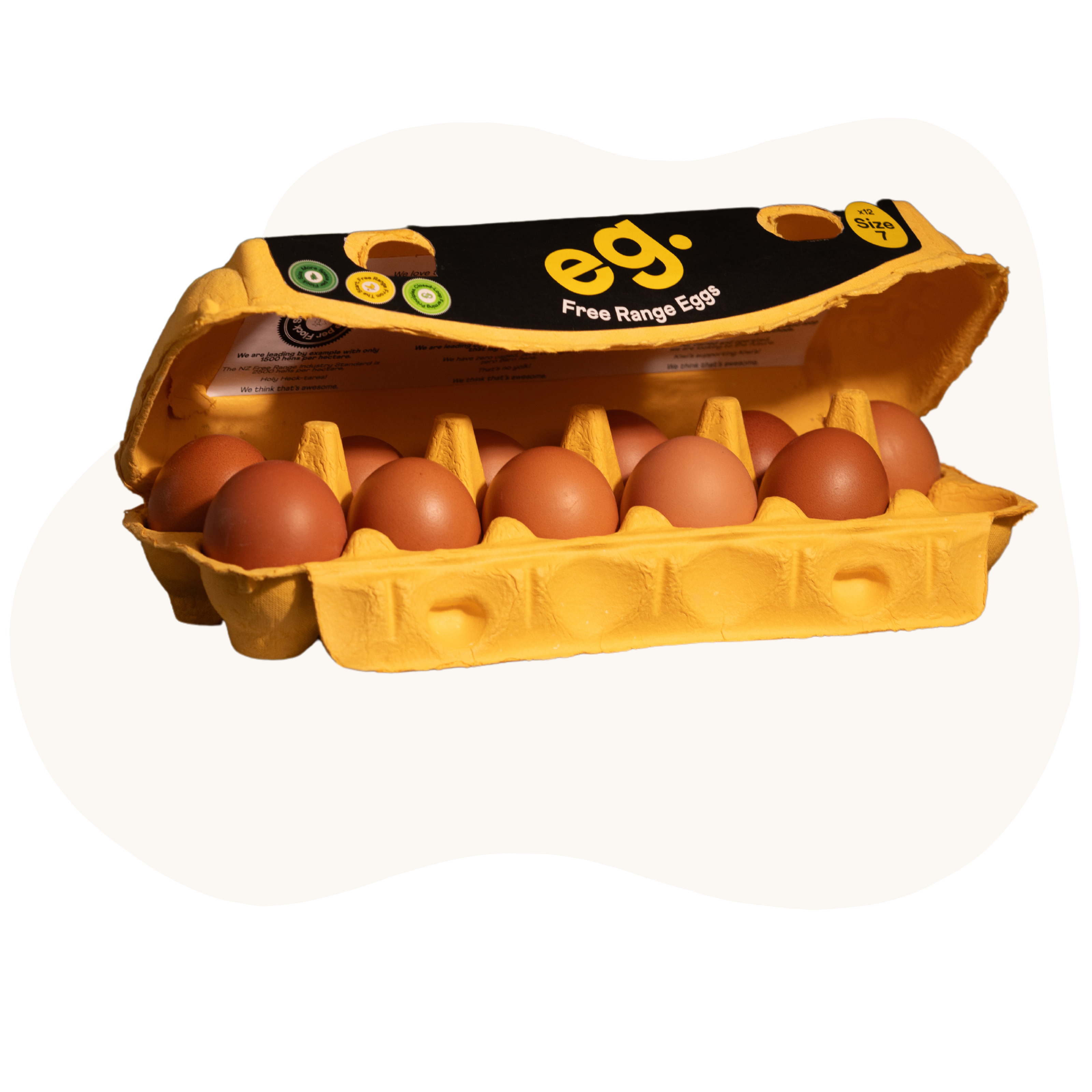The Science of Cooking with Eggs.

The magic of egg proteins!
Eggs are the ultimate multi-taskers thanks to their unique protein structure. These proteins contain hydrophobic (water-repelling) and hydrophilic (water-attracting) amino acids, making eggs incredibly versatile. This lets them be used in many forms — from liquid to frozen to dried egg products.
Transforming eggs through cooking
-
Whipping: Egg whites are perfect for creating fluffy meringues and soufflés.
-
Emulsifying: The yolk shines here, perfect for mayonnaise and hollandaise sauce.
-
Heating: Gives us scrambled eggs, omelettes, and more.
Egg-cellent ways to prepare eggs
-
Boiling: For the perfect hard-boiled egg, place eggs in cold water, bring to a boil, then remove from heat and let sit for 10-12 minutes.
-
Frying: For sunny-side-up eggs, cook on low heat and cover the pan to ensure the egg whites are fully cooked.
-
Scrambling: Whisk whole eggs with a splash of milk for extra fluffiness. Cook on medium-low heat, stirring constantly.
-
Baking: Using eggs in baking can help create structure, add moisture, and act as a binding agent. Room-temperature eggs incorporate better into batters and doughs.
Share this story
More eg. Articles
How many grams of protein are in an egg?

Omelettes made easy with eg.


